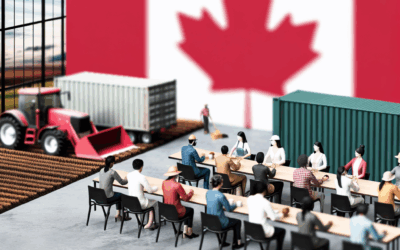Understanding Deportation Policies in Canada
Canada is known for its welcoming immigration policies, but it also has strict deportation regulations in place to maintain the integrity of its immigration system. Deportation is the legal process of removing individuals who violate immigration laws, pose security risks, or overstay their visas. Understanding how these policies work is crucial for immigrants, temporary residents, and Canadians alike. This article delves into the key aspects of Canada’s deportation system, including the legal framework, grounds for deportation, the process itself, and the rights of those facing deportation. By exploring these topics, readers will gain a comprehensive understanding of how Canada balances compassion with enforcement in its immigration practices.
Legal Framework for Deportation
Canada’s deportation policies are governed by the Immigration and Refugee Protection Act (IRPA). This legislation outlines the conditions under which a person may be deported, such as criminal activity, security threats, or misrepresentation of immigration status. The Canada Border Services Agency (CBSA) is the primary body responsible for enforcing these laws. Additionally, the Immigration and Refugee Board (IRB) plays a critical role in adjudicating deportation cases. Understanding this legal framework is essential for grasping how deportation decisions are made and the protections available to individuals.
Grounds for Deportation
There are several reasons why someone may be deported from Canada. Common grounds include:
- Criminal convictions: Serious crimes can lead to deportation, even for permanent residents.
- Security risks: Individuals deemed a threat to national security may be removed.
- Misrepresentation: Providing false information during the immigration process can result in deportation.
- Overstaying visas: Failing to leave Canada after a visa expires is a violation of immigration laws.
These grounds reflect Canada’s commitment to ensuring that immigration policies are respected and that public safety is prioritized.
The Deportation Process
The deportation process in Canada is multi-staged and involves several steps. First, a removal order is issued by the CBSA or IRB. The individual has the right to appeal the decision, depending on their immigration status and the grounds for deportation. If the appeal is unsuccessful, a departure date is set, and the person is required to leave the country. In cases where individuals do not comply, enforcement officers may physically remove them. Understanding this process helps demystify what can often be a stressful and complex experience for those involved.
Rights of Individuals Facing Deportation
Individuals facing deportation in Canada are entitled to certain rights. They have the right to legal representation, the opportunity to appeal the decision, and the right to a fair hearing. Additionally, humanitarian and compassionate grounds can be considered to halt deportation in exceptional circumstances. These protections ensure that deportation decisions are made with due process and fairness, reflecting Canada’s commitment to upholding human rights even in enforcement actions.
Impact of Deportation on Families and Communities
Deportation does not only affect the individual being removed; it also has ripple effects on their families and communities. Families may face separation, financial hardship, and emotional distress. Communities may lose valuable contributors to the workforce or social fabric. Recognizing these broader impacts is important for fostering empathy and understanding in discussions about deportation policies.
Conclusion
Canada’s deportation policies are a critical component of its immigration system, designed to uphold the law while balancing humanitarian considerations. From the legal framework to the deportation process and the rights of individuals, these policies reflect a complex interplay of enforcement and compassion. Understanding the grounds for deportation and its impact on families and communities provides a holistic view of this issue. As Canada continues to welcome immigrants, maintaining fair and transparent deportation policies remains essential for preserving the integrity of its immigration system and protecting the rights of all individuals.



